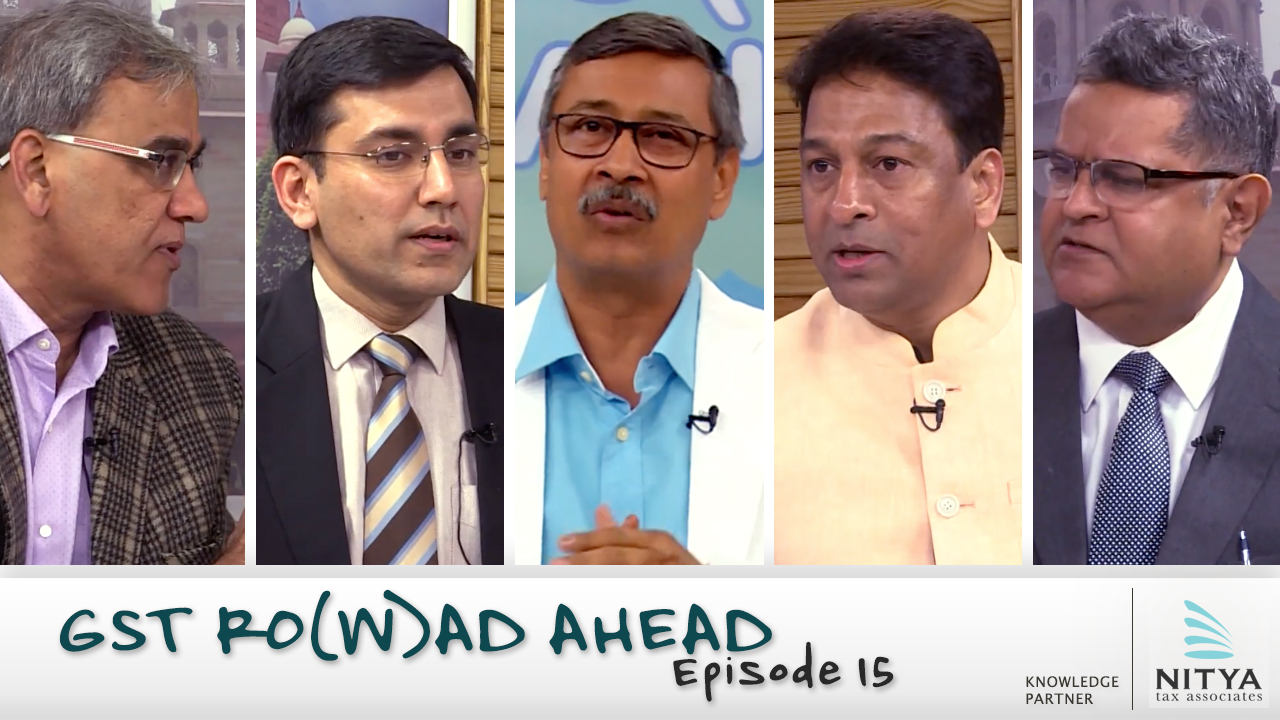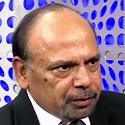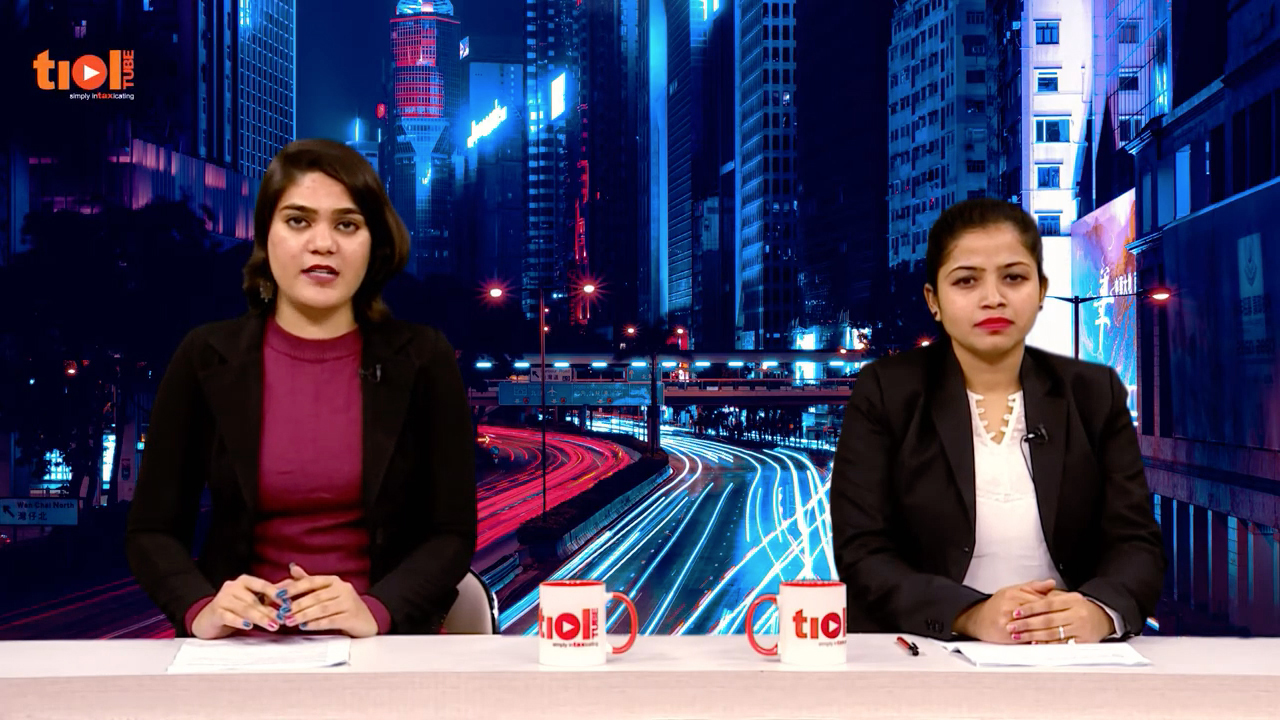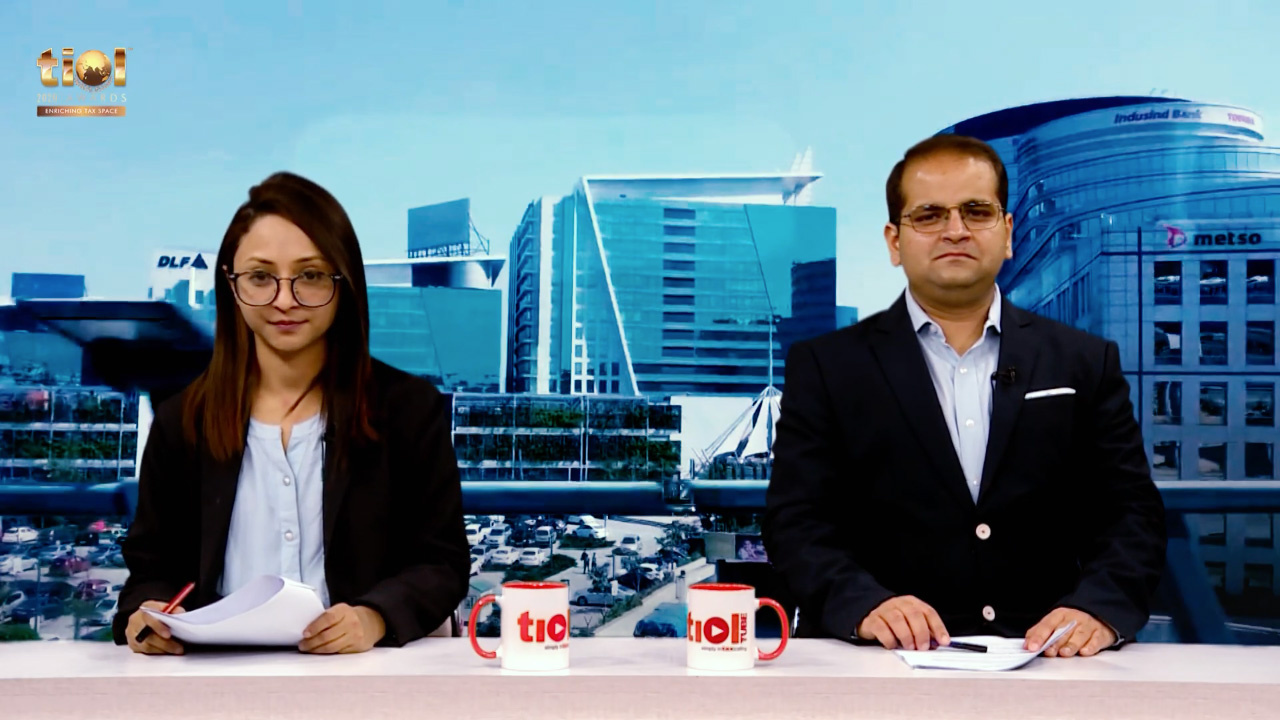|
SERVICE TAX
2020-TIOL-872-CESTAT-MUM
SRK Creative Pvt Ltd Vs CCT & GST
ST - Appellant is registered as a service provider under the category 'Photography services' - investigations revealed that apart from undertaking the activities for which the appellants were registered and paying service tax, they also undertook the activity of 'digital offset printing' and for which activity soft copies of pictures, photographs and print material was provided by clients - contention of Revenue is that the activity undertaken in relation to 'digital offset printing' was a service leviable to service under the category of 'photography service' both prior and post introduction of negative list regime w.e.f 01.07.2012 - SCN issued for recovery of service tax amounting to Rs.6,61,85,652/- and imposition of penalties/interest - demand confirmed, hence assessee is in appeal before CESTAT.
Held: It is a unique case where the Commissioner distinguishes the case of Global Digital Colour Lab - 2016-TIOL-551-CESTAT-DEL and still relies upon the ratio of the same to hold against the appellant - If the Commissioner was of the view that the facts in the cited case were not identical to the facts of the case under consideration, then the same was not relevant for deciding the case on hand - In view of the Tribunal decision in Venus Albums - 2019-TIOL-2173-CESTAT-CHD , Chandigarh Bench has on identical facts held that the activity undertaken by the appellant of printing photograph on plain printing paper and thereafter binding them and selling as photo books is a manufacturing activity classifiable under chapter 4911; that after introduction of GST, classification of the said product is held to be under HS Code 4911 as clarified by Circular F.No. 332/2/2017-TRU dated December 2017 - Bench finds no reason to differ with the same - as the demand cannot be sustained on merits, issue of limitation is not gone into - penalties and demand of interest is also set aside since unsustainable - appeal allowed: CESTAT [para 4.4, 4.5, 4.6, 5.1]
- Appeal allowed: MUMBAI CESTAT
2020-TIOL-861-CESTAT-BANG-LB
South Indian Bank Vs CC, CE & ST
ST - Issue before the Larger Bench and involved in all these appeals is whether the banks can avail credit of the service tax paid by the banks for the service provided by the Deposit Insurance and Credit Guarantee Corporation.
Held:
++ In PNB Metlife India 2015-TIOL-1097-HC-KAR-ST Karnataka High Court noted that since re-insurance has to be taken under section 101 A of the Insurance Act, it is a statutory obligation and, therefore, has to be considered as having nexus with the "output service" and, therefore, would be an "input service", for which CENVAT credit can be availed – This decision has been accepted by the Central Board of Excise and Customs in the Circular dated 16 February, 2018 - In the present appeals also, in order to render any output service under the category of "banking and other financial services", it is necessary for a bank to register itself with the Deposit Insurance Corporation and pay premium after registration - A bank, without obtaining registration and without payment of insurance premium on the deposits outstanding, cannot render any "output service" of "banking and other financial service" - It, therefore, follows from the discussion made above and the decisions in PNB Metlife India (supra) and Shriram Life Insurance Company Ltd. - 2019-TIOL-1087-CESTAT-HYD also that banks can avail CENVAT credit of the service tax paid by the banks on the premium amount paid to Deposit Insurance Corporation for the insurance service rendered by the Deposit Insurance Corporation to the banks – Such view has been taken by the Tribunal in State Bank of Bikaner 2019-TIOL-558-CESTAT-DEL, however, in ICICI Bank 2019-TIOL-589-CESTAT-MUM a contrary view was taken - For reasons stated above, it is not possible to accept the view taken by the Division Bench of the Tribunal in ICICI Bank - The reference is, accordingly, answered in the following terms - "The insurance service provided by the Deposit Insurance Corporation to the banks is an "input service" and CENVAT credit of service tax paid for this service received by the banks from the Deposit Insurance Corporation can be availed by the banks for rendering 'output services'." - appeals may now be placed for hearing before the respective Division Benches of the Tribunal: Larger Bench [para 59 to 65]
++ It cannot be doubted that the insurance service received by the banks from the Deposit Insurance Corporation is not only mandatory but is also commercially expedient - In fact, without this service the banks may not be able to function at all - Premium is paid by the banks to the Deposit Insurance Corporation for providing the insurance service for which the banks pay service tax - It is this service tax paid by the banks on the insurance service received by the banks from the Deposit Insurance Corporation that is the bone of contention between the parties - It is not in dispute that after accepting the deposits there are number of services on which the banks have to pay service tax under "banking and other financial services" - These services are in connection with both the "accepting" of deposits and "lending" activity of the banks - Banks would be able to lend only if they accept deposits - It has been seen that without payment of insurance premium on the outstanding deposits, banks will not be able to function or render any output service of "banking and other financial services" and the licence granted to the banks by the Reserve Bank of India can be cancelled - Thus, the service rendered by the Deposit Insurance Corporation to the banks would fall in the main part of the definition of "input service", which is any service used by a provider of output service for providing an output service - Once this service falls in the main part of the definition of "input service", it would not be necessary to examine whether the service would be covered by the inclusive part of the definition - Having made reversal under rule 6(3B) of CCR, 2004, the banks have duly complied with the 2004 Rules and hence they are entitled to avail CENVAT credit on the insurance service received from the Deposit Insurance Corporation: CESTAT [para 50 to 53, 57]
- Reference answered : BANGALORE CESTAT
2020-TIOL-860-CESTAT-BANG
Karnataka Industrial Areas Vs CCT
ST - It is alleged that M/s.Karnataka Industrial Areas Development Board (KIADB) are engaged in providing various taxable Services such as Renting of Immovable Property Services, Construction of Commercial and Residential Complexes, Business Support Services, Management, Maintenance or Repair Services, Manpower Recruitment and Supply Services, Works Contract Services, etc., to various clients - On the basis of intelligence gathered and developed by the officers of the Directorate General of Central Excise Intelligence, Bangalore Zonal Unit (BZU), it appeared that M/s. KIADB provided the above-mentioned taxable services, but did not pay the appropriate Service Tax on such taxable services provided by them - M/s KIADB appeared to have evaded payment of Service Tax amounting to Rs. 1295,14,21,404/- for the period from 1-10-2005 to 31-3-2010 - Demand confirmed by Commissioner of Service Tax, Bangalore along with imposition of penalties and interest - appeal to CESTAT.
Held: Crucial question in the instant case is whether at all the appellant, which is a statutory authority (KIADB) constituted under the Karnataka Industrial Areas Development Act, 1966 ( KIAD Act) for carrying out the purposes, is providing any service as defined in the Service Tax legislation (Finance Act, 1994) - If, after analysing the various provisions of the KIAD Act and the submissions of the parties, Bench comes to the conclusion that there is no service being rendered by the appellant as argued by the appellant, then the question of levy of service tax would not arise - A careful reading of the provisions of KIADAct and KIADB Regulations would clearly go to show that the appellant is a State undertaking and creature of a statute to exercise the power of "eminent domain? - The appellant is engaged in discharging statutory functions under an Act of Legislature viz. KIAD Act, 1966 - It is a statutory body performing statutory functions and exercising statutory powers - Once carrying out the objectives of the Act, then it cannot be treated as a service provider under the Finance Act, 1994 - Further, there is no service provider-client relationship so as to warrant the levy of service tax under the provisions of Finance Act, 1994 - Appellant has undertaken various activities and functions in the State of Karnataka as per the directions of the State Government given from time to time under the provisions of the Act and hence their activities cannot be considered as taxable service and no service tax can be levied for these activities - in the case of CCE, Nashik Vs. Maharashtra Industrial Development Corporation [ 2017-TIOL-2629-HC-MUM-ST ], the Bombay High Court has held that no service tax could be demanded on the charges collected by Maharashtra Industrial Development Corporation in terms of the Maharastra Industrial Development Act, 1961 towards maintenance of the industrial areas, as the same is in the nature of statutory functions performed in terms of the statute - functions of MIDC under MID Act, 1961 is more or less identical with the functions of the appellant, KIADB under KIAD Act, 1966 - When the maintenance of industrial area itself is held to be statutory function as held by the Bombay High Court (supra), then the main function of acquisition of law, development of such land into industrial area and allotment of such land on lease-cum- sale basis by the appellant would certainly be a statutory function and does not attract levy of service tax - On the same analogy, Bench holds that other functions being incidental cannot be brought into tax net - decision of the Allahabad High Court in the case of Greater Noida Industrial Development Authority [ 2015-TIOL-1008-HC-ALL-ST ] , on which the Revenue has heavily relied upon, has been stayed by the Supreme Court , h ence the said judgment cannot be relied upon by the Revenue to counter the claim of the appellant and the said decision is not a binding precedent to decide the present case - Section 28(8) of the KIAD Act, in express terms, states that where the land has been acquired by the State Government for KIADB, the State Government after it has taken possession of the land from either owner or interested person may transfer the land to KIADB for the purpose for which the land has been acquired by it, therefore, it is not correct to say that KIADB has no power of eminent domain - Bench is, therefore, of the considered opinion that the appellant is a statutory body discharging the statutory function as per the statute KIAD Act, 1966 and hence are not liable to pay service tax in view of the ratios of the various decisions cited supra - impugned order is set aside and appeal is allowed: CESTAT [para 7.1 to 7.6, 8]
- Appeal allowed : BANGALORE CESTAT
2020-TIOL-853-CESTAT-MAD
Laster Soft Infosystems Ltd Vs Commissioner Of GST & CE
ST - Rule 2(l) of CCR, 2004 - Input Service - CENVAT - Period involved is prior to 01.04.2011, when the definition of 'input services' had a wide ambit as it included phrase "activity relating to business" - The Tribunal as well as various High Courts have held that almost all the activities which fall into the category of "activity relating to business" will be eligible for credit - Therefore, Outdoor Catering Services, Rent for Car Parking, Subscription for Global Tender Information etc. are input services - credit allowed, consequently penalty imposed of such amount while denying credit is set aside: CESTAT [para 5]
ST - CENVAT - Appellant had initially availed the credit on invoice and thereafter, could not trace the invoice - they have accepted the denial of credit - insofar as penalty is concerned, taking into consideration that assessee had availed the credit on a bonafide belief that the credit is eligible to them, penalty imposable cannot sustain: CESTAT [para 5]
- Appeal partly allowed: CHENNAI CESTAT
2020-TIOL-852-CESTAT-CHD
CCE Vs Hotel Shivalikview
ST - The revenue has filed this appeal for the reason that because respondents have paid the entire tax, Commissioner has set aside the confirmation of demand by adjudicating authority - The respondents though have paid the tax/duty have not deposited the interest due on account of delay in payment of tax/duty - Hence, when Commissioner (A) has set aside the proceedings for demand of tax/duty, it would impact the recovery of interest which has not been paid by respondents - Recovery of interest under section 11AB of CEA, 1944/Section 75 of FA, 1994 is not a consequence of confirmation of demand made in terms of Section 11A of CEA, 1944/Section 75 of FA, 1994 but is a consequence of delay in payment of duty/tax - Hence just for the reason that Commissioner (A) has held that demand of duty/tax cannot be sustained for the reason that assessee has already paid the duty/tax would not come in the way of recovery of interest - The interest that is due needs to be recovered as sums due to the government by application of provisions of Section 11 of CEA, 1944 - Hence, when the interest liability on account of delay in payment of tax is absolute, the appeal filed by the revenue in the matter against the dropping of demand by Commissioner (A) after taking note of deposit of tax/duty made by the assessee is infructuous and hence needs to be dismissed as such - However, revenue is free to explore possibility of recovery of interest: CESTAT
- Appeal dismissed: CHANDIGARH CESTAT
CENTRAL EXCISE
2020-TIOL-851-CESTAT-CHD
B C L Industries And Infrastructure Ltd Vs CCE & ST
CX - The assessee is engaged in manufacturer of refined oil, Vanaspati ghee, fatty acids, acid oil, tin containers and plastic containers - These products are chargeable to central excise duty under Section 4 of CEA, 1944 - The packing material namely, tin and plastic containers are exempted by conditional exemption Notfn 10/96 - They also procuring duty paid fatty acid and acid oil as per Rule 16(1) of CER, 2002 availing the Cenvat credit of duty paid and removing and clearing the goods in terms of Rule 16(2) - The dispute is regarding the eligibility of exemption Notfn 89/95-CE in respect of waste generated in the course of manufacture of their final products - The issue has been settled by Tribunal in Priyanka Refineries Limited 2009-TIOL-2576-CESTAT-BANG and upheld by Apex Court - Having observed that the issue has been settled at the level of Supreme Court to first appellate authority, she however sought to deny the benefit of this exemption notification on the ground that the assessee was also manufacturing plastic tin containers and which are excisable goods and were not exempted - Therefore, they are covered by proviso which excludes the benefit of Notification 89/95 - Finding of the first appellate authority is incorrect as the plastic and tin containers and which they have manufactured and used are clearly exempted by notification 10/96- CE - The impugned order is set aside: CESTAT
- Appeal allowed: CHANDIGARH CESTAT
2020-TIOL-850-CESTAT-DEL
Century Pulp And Paper Vs Commissioner of CGST
CX - The assessee is a manufacturer of paper and paper board and they had undertaken extension/expansion of paper board unit - They acquired various inputs for fabrication of plant & machinery like C.R./H.R. Sheets and also for fabrication of storage tanks, in the factory premises about 12 m. in number - For such purposes, the assessee received inputs of various items like C.R. Coils, Aluminium Sheets along with cenvatable invoices and taken cenvat credit on the same and utilised these items in their factory for the insulation work and also for fabrication of storage tanks - The issue involved is whether they have rightly taken cenvat credit during the period from 2009 to 2014 on the various items - It is not disputed that the assessee has received inputs objected to and it is not the case of Department that during the inspection they did not find the capital goods, and/ or fabrication work done by the assessee in the factory of production - Even under the substituted definition of 'inputs' w.e.f. 1.4.2011, the same provides for eligibility of cenvat credit to all goods used in the factory by manufacturer of the final products - Thus, the substituted definition does not exclude the goods used in the manufacture of capital goods, which are further used in the factory of the manufacturer - Further, it is also not the case of the Revenue that the capital goods so fabricated are not required by manufacturer, in manufacture and clearance of taxable/dutiable outputs - In this view of the matter, assessee is entitled to cenvat credit on the disputed items, for the disputed period: CESTAT
- Appeal allowed: DELHI CESTAT
CUSTOMS
2020-TIOL-849-CESTAT-DEL
Si Group India Pvt Ltd Vs Designated Authority
Anti Dumping - This appeal is filed by Domestic Industry(DI), the Appellant herein against the Final Finding & Recommendation of Designated Authority (DA) - On an application filed by the Domestic Industry, for imposition of Anti Dumping Duty on the imports of "Nonyl Phenol", the subject goods from Chinese Taipei, investigation was initiated by DA and anti-dumping duty on imports of Nonyl Phenol from Chinese Taipei was recommended vide Finding & Recommendation - The limited question involved for determination is; whether the conclusions and the recommendations of designated authority dated 11.01.2019 against continuation of anti dumping duty on the subject goods Nonyl Phenol from the subject country Chinese Taipei, pursuant to the sunset review, is correct in law - Tribunal is not concerned with the imposition of anti dumping duty on subject goods from the subject country which was initially imposed in 2007 and thereafter extended for a period of five years - The present proceeding is for second sunset review of the duty which was initiated at the behest of Appellant following the laid down procedures - The finding and conclusion of designated authority in nut shell indicates that since the health and condition of domestic industry is not in bad shape during the relevant period and also as the Appellant could not prove/establish from the existing facts and evidences that there is any likelihood of dumping and injury to the domestic industry that would recur in future once the duty is removed extension of antidumping duty is not warranted - There is a fundamental fallacy in the approach of DA in determination of likelihood of recurrence of dumping and injury post removal of the duty on subject goods from the subject country - There is no dispute of the fact that evidence of past and present circumstances is relevant and necessary to arrive at a reasonable and logical determination of continuation of same scenario in future warranting continuation of antidumping duty or otherwise - However, it is impractical and also illogical to insist on the positive evidences on future events, for determination of the likelihood of dumping and injury in future on removal of duty - The parameters to reach at the conclusion on likelihood of dumping and injury adopted in Sunset Review proceeding by various countries mentioned are: to name a few, current dumping and injury, significant production capacity and inventories of exporters, existence of barriers for import of such goods in other countries, failure of respondents to participate in review proceeding, declining demand in exporters domestic market and high degree of dependence on export market by exporters - In this back drop, the Appellant domestic industry could reasonably establish through present and past evidence that most of these parameters are satisfied - The dumping margin is in the range of 10-15% and is positive and above de-minimis - Despite anti dumping duty, the earning of domestic industry is meagre 2% and return of capital is around 5% against the normal return of 22% - The landed value of import without anti dumping duty are below the cost of production of domestic industry - The Appellant was able to show that there is a demand of around 17,216 MT in domestic market, whereas the ideal capacities of foreign exporters are around 24,376 MT - Export restrictions are placed on subject goods in other international markets viz. USA, Canada and European Unions, leaving major market only in Asia - The subject goods restriction in China PR being added to the list of restricted toxic substance would find its way in Indian market - There is growing Indian market in the sense that per capita consumption surfactant is expected to increase - Further, they could show that the export from Chinese Taipei to other countries have been made at dumped prices - Besides, the most important factor is that there has been no participation/response by the exporters of the subject goods on the proposed continuation of anti dumping duty - Therefore, on removal of the anti dumping duty there will be likelihood of recurrence of dumping and injury to the domestic Industries - The conclusions and recommendations are set aside and the matter is remanded to the Designated Authority to calculate the appropriate anti dumping duty while taking note of overall circumstances of the case: CESTAT
- Appeal allowed: DELHI CESTAT |
|









